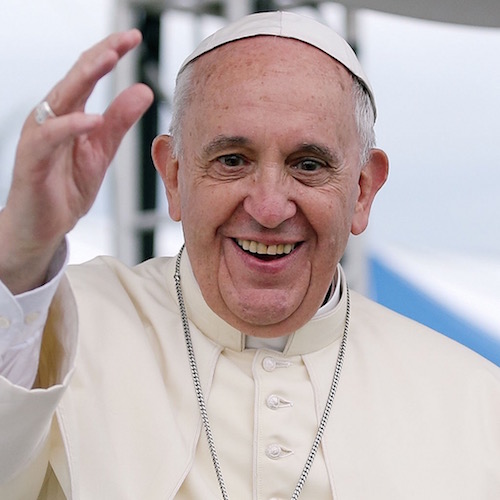 Culture & Ethics
Culture & Ethics
 Faith & Science
Faith & Science
Pope Francis Embraces Human Exceptionalism

There was some buzz in the liberal Catholic press that Pope Francis might embrace “nature rights.” I suggested that course could lead to a schism in the Catholic Church because it would essentially elevate nature to human status, or perhaps better stated, reduce us to just another animal in the forest.
While I think Francis has ignored the many efforts humankind undertakes to protect the environment, at least he has rejected “biocentrism.” From the encyclical:
A misguided anthropocentrism need not necessarily yield to “biocentrism”, for that would entail adding yet another imbalance, failing to solve present problems and adding new ones. Human beings cannot be expected to feel responsibility for the world unless, at the same time, their unique capacities of knowledge, will, freedom and responsibility are recognized and valued.
That’s human exceptionalism.
Good. The Pope weaves too many straw men in his letter, contrasting a supposed total lack of regard for the environment versus his vision of environmental responsibility. That’s not a tenable argument. At least in the free market West, we have enough environmental regulations to fill a Carnegie library.
But I wholeheartedly agree with the Pope’s claim that we have duties toward the environment, animals, and nature precisely because we are human. Indeed, the idea of unique human value and concomitant duties are the core of human exceptionalism.
On that basis, we can have reasonable discussions and debates including about the extent to which we should protect the environment from human development, and how to properly balance our (I would say higher) duties toward humanity.
The Pope also connected environmentalism with adherence to the sanctity of human life:
When we fail to acknowledge as part of reality the worth of a poor person, a human embryo, a person with disabilities — to offer just a few examples — it becomes difficult to hear the cry of nature itself; everything is connected. Once the human being declares independence from reality and behaves with absolute dominion, the very foundations of our life begin to crumble, for “instead of carrying out his role as a cooperator with God in the work of creation, man sets himself up in place of God and thus ends up provoking a rebellion on the part of nature”.
Despite the disagreements I could voice, I am very pleased that Pope Francis embraced human exceptionalism and with the manner in which he applied his arguments from that understanding, in conjunction with his devout Catholic faith.
Image by Korea.net / Korean Culture and Information Service (Photographer name) [CC BY-SA 2.0], via Wikimedia Commons.
